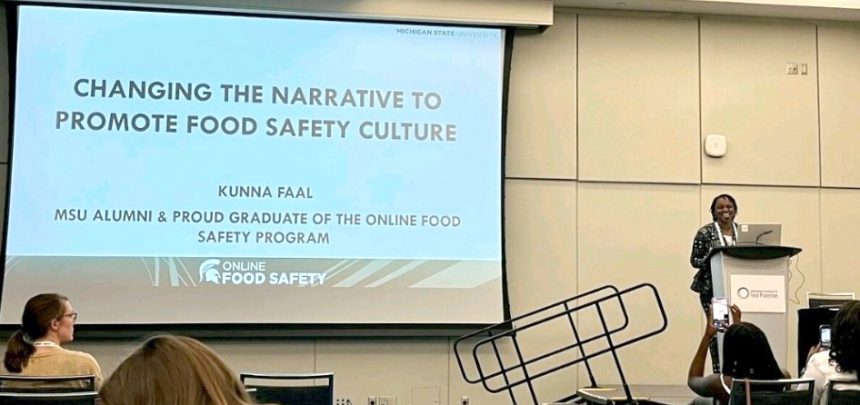
Dr. Patty Weber originally joined MSU as a research scientist. She is passionate about both teaching and research. Because of her dedication, numerous undergraduate and graduate students have benefited from her guidance as a research project mentor or a graduate committee member. In addition to her research and mentoring credentials, Weber is well-versed at writing in the scientific disciplines with several co-authored publications in well-respected peer-reviewed journals.
Affiliations
- Department of Large Animal Clinical Sciences
Featured Content: OFS Student Research and Experiences
Quality Assurance Magazine: Food Safety U: Kunna Faal
Paul Seltzer for Journal of Dairy Science: Graduate Student Literature Review: Labeling challenges of plant-based dairy-like products for consumers and dairy manufacturers
Colleen Nyland for Journal of Food Protection: Regulating for Safety: Cannabidiol Dose in Food: A Review
MSU's Online Food Safety Program
Accepting its first students in 2002, the Online Master of Science (MS) in Food Safety Program at Michigan State University was created in response to a market research study conducted in the year 2000. This study revealed an overwhelming need on the part of food industry, government, and public health for their employees to be specifically educated in the many aspects of safeguarding our food supply.
The Program includes a non-thesis/plan-B applied research project in food safety.
OFS + STOP Foodborne Illnesses Research
The MSU Online Food Safety Program, in conjunction with two separate Dave Theno Fellows at STOP Foodborne Illnesses, is investigating the long-term health consequences of Shiga toxin-producing Escherichia coli-associated hemolytic uremic syndrome (STEC-HUS). STEC-HUS is a disease caused by a gastrointestinal infection by a Shiga toxin-producing E. coli.
These two separate projects are entitled:
Alumna Feature: Kunna Faal

[bio]

